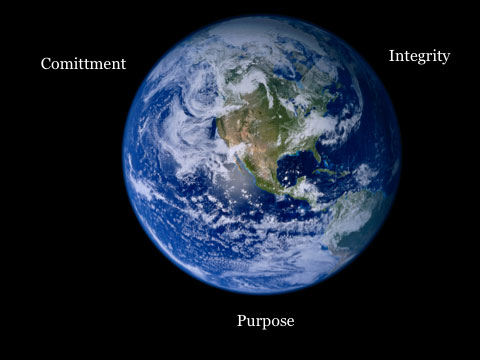Consulting, convening, coding, covering new ground, plus occasional commentary.
The myth of the five-day work week: why ass-in-chair does not deliver productivity

At one of the spectrum you have the concept of the 4-hour work week, and at the other you have the five-day work week. Both are myths, IMHO.
Today, I want to rant about the latter: The myth of the five-day work week.
Some years ago I delivered a presentation titled “Time Management for the Productivity Challenged” at the first Social Tech Training in Toronto.
You could hear a gasp in the packed room of professional campaigners and social-change activists – people prone to eighty-hour work weeks and tireless commitment – when I proposed that most of us only have thirty or forty summers left to experience.
Life can seem long, until you contrast it with something as fleeting as events that only happen an easily conceivable number of times, like summers, or vacations, or the remaining birthdays of family members.
Dire? Maybe. True? Absolutely.
The point of my talk was not to scare people into quitting work and living out their remaining summers following their wildest dreams (though, I’d never argue that you shouldn’t do that if you can!).
My point was to re-frame how we need to work: being clear about what work gives to us – meaning, purpose, etc. – and proposing that we need to give back to that work to make it sustainable. Giving back, however, is not keeping your ass in the chair eighty-plus hours a week (or, I would argue, even forty hours a week).
I mixing a couple themes together here, so this is probably a bit murky, but here’s my point:
-
Working five days a week does not equal being productive five days a week. It’s commonly understood (lots of reports on the InterWebs if you want to search) that workers who work the standard 9-5 deliver less than 40% actual productivity. Microsoft looked at this in the 80s, many have researched it since.
-
Add to that the reality that most 9-5 workers have no ability to manage their time because they’re completely unaware of how little of it they actually have. For example, do this exercise: take the number of hours you estimate that you ‘worked’ last week, now subtract the time you spent doing personal things (phone calls, lunch, breaks, errands, etc.), and subtract the time you spent in meetings and conversations with colleagues, and subtract the time you spent on e-mail – now subtract an estimate of your ‘unproductive time’ (day dreaming, Web surfing, making to-do lists, improving your project management process, etc.). What do you have left? Was it what you thought? How do you manage your commitments when you think you have forty hours to work with, and – in actuality – you have some number (often dramatically) less than that?
-
Next, it’s generally agreed that breakthrough ideas are only possible when you have enough time away from the problem for your brain to subconsciously work on it. If you’re banging your head against the monitor every day, it’s unlikely you’re going to give yourself the fertile ground you need to find the best solution to the problem.
-
Then there’s the whole school of thought that thinks that too much focus / too narrow scope can limit a worker’s ability to think outside the box. For example, if you’re a programmer, most problems look like programming problems that need to be solved with better software. Often, that’s not the case, nor the best solution. Working on a variety of problems, in a variety of roles, can often provide the mix of perspectives necessary to see the problem from many different angles, and propose cross-cutting solutions.
After a decade and a half of consulting – of billing by the hour, and ensuring that those hours are the most focused and high-value that I can deliver – I’m convinced that very, very few people can be ‘in the flow’ and delivering high-value productivity for more than 18 - 24 hours a week.
That’s why the five-day work week is a myth: outside of the factory or sweatshop, I believe that it is one of the most wasteful arrangements of the workforce that has ever been perpetuated.
Prove me wrong. :)
About
Hi, I'm Phillip Smith, a veteran digital publishing consultant, online advocacy specialist, and strategic convener. If you enjoyed reading this, find me on Twitter and I'll keep you updated.

Related
Want to launch a local news business? Apply now for the journalism entrepreneurship boot camp
I’m excited to announce that applications are now open again for the journalism entrepreneurship boot camp. And I’m even more excited to ...… Continue reading
Previously
Code Meet Print TO: Where texts meet technology and context comes first
From the future
Knight-Mozilla learning lab heats up: lectures by @azaaza @burtherman @codepo8 @jeresig @jeffjarvis @evanatwired & many more.